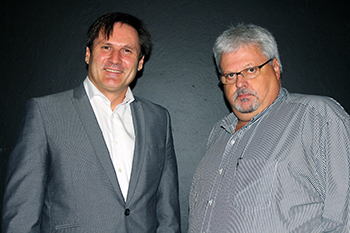Latest News Archive
Please select Category, Year, and then Month to display items
![]()
The composition of the Council of the University of the Free State is stipulated in the UFS Statute, as promulgated in the Government Gazette of 26 January 2018. The terms of office of the President of Convocation, Prof Johan Grobbelaar, Christo Dippenaar, Henry Madlala (Qwaqwa Campus) expire on 31 October 2018. Convocation has to appoint three representatives in their place, one of which has to be the President of Convocation and another should be from the Qwaqwa Campus. In terms of the Statute, both Dippenaar and Madlala are eligible for re-election.
Written nominations for the election of three representatives of the Convocation for a period of four years, are hereby requested.
The Convocation comprises of all permanent academic staff from lecturer to professor, all permanent staff other than academic staff from Deputy Director to Rector and Vice-Chancellor by virtue of their respective offices and all students (current and former) who obtained a qualification at the university.
Each nomination shall be signed by five members of Convocation and shall contain the written acceptance of the nomination by the nominee under his or her signature, as well as an abridged CV (±2pages). These must reach Dawid Kriel by 12:00 on Monday 12 November 2018. If more than one person per each of the three categories is nominated, elections will be held on or before Friday 16 November 2018. You will be notified of the final date for elections in due course. Please submit your nomination via:
• E-mail: dawid@ufs.ac.za
• Fax: 086 643 1665
• Post: Dawid Kriel University of the Free State: Institutional Advancement PO Box 339 Bloemfontein 9300
• Hand delivered at: Dawid Kriel, Room 26, 1st Floor, Wekkie Saayman Building, Bloemfontein Campus
For enquiries, please contact Claudine Taylor at TaylorCL@ufs.ac.za or +27 51 401 2097.
Click here for the nominations form.
Internationally-renowned futurist proposes innovation in corporate management
2016-05-10

Pieter Geldenhuys, guest speaker at the seminar, who mapped the future of corporate management (left) with Dr Vic Coetzee, Senior Director: Information and Communication Technology Services at the UFS (right).
Photo: Hatsu Mphatsoe
|
Humans need to adapt their thinking to the world’s changes. This is Pieter Geldenhuys’s conviction.
The Information and Communication Technology Services (ICT) at the University of the Free State hosted a seminar on 22 April 2016 at the Bloemfontein Campus. Geldenhuys, the Director of the Institute for Technology Strategy and Innovation at North-West University and internationally-renowned futurist, presented his views on technology, innovation, and corporate management on this occasion.
Geldenhuys, a well- known speaker, academic, and futurist, is in the business of identifying opportunities in the changing technological and social landscape with the aim of assisting companies to prepare for the future, while being an active agent in defining it. Lately, he has been exploring the concept of a new kind of management science, which he believes is a prerequisite for institutions such as ours.
This management science incorporates physics in improving corporate management. “We have an unbelievable grasp of the world of physics,” he said, suggesting that we use our knowledge of nature to capitalise on individual and collective strengths within institutions.
He said that minor changes can change one’s future or that of an organisation completely. He even went as far as to state that the culture of an organisation is the one that determines how well you do. Relating to the adaption of organisations in a constantly changing and dynamic environment, Geldenhuys advised that, “when faced with disruption, don’t retaliate; accept.”
By making use of different tools, such as technology aw well as social and business trends, Geldenhuys is adamant that corporations and institutions will adapt easily to the world’s complex systems.